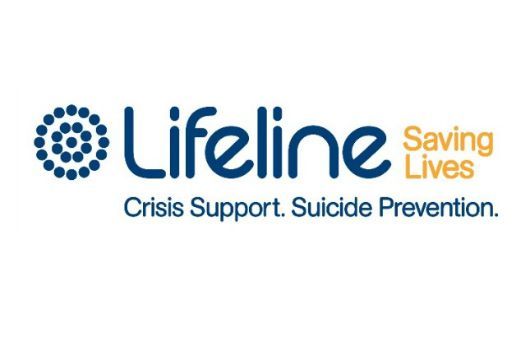Know Suicide, No Suicide

Discovering that a loved one is navigating suicidal thoughts can be devastating. A whole range of emotions might come up for you, such as anger, guilt, shock, confusion, or numbness. It’s normal to have these feelings while addressing their mental health struggle. Additionally, the scarcity of resources and associated social stigma may further complicate your ability to appropriately help them. I commend your willingness to support them during this challenging period. There is immense value in being taken seriously and lending genuine support.
Read below for supportive advice on how to navigate this challenging time. Please note that even if you are a health professional, it is not ethical for you to compensate for professional help as a loved one. However, you can surely help them in other ways.
Supporting Loved Ones Having Suicidal Thoughts
Be informed:
You could start by reading up more about suicide - causes, warning signs, risk factors, protective factors, myths and facts. This will help you understand the issues they are facing. Next, look up resources, both pro bono (free of cost) and paid, in their area. This would enable you to help them ease their search for a therapist. You could also start by browsing options here at Growlife Medical.
Offer emotional support:
Listen. Provide them with a safe space so they feel comfortable to open up about their struggle. Stay calm and be patient. Don’t jump to conclusions. Hear them out completely. If they are finding it difficult to open up, let them know that you’ll be there when they are ready. When they do open up, acknowledge their pain. Reassure them that there is hope and that you care.
Ask them how you can be there for them:
Be prepared to ask them the heavy questions around what has been going on in their life. Do not judge them for considering suicide as a solution for their problems. Everyone has a different way of coping with excessive stress. You may not consider suicide in difficult times but unfortunately there are many who do.
Ask them about their feelings of suicide directly. We understand that this sounds hard to do, remember that this is crucial at this moment. Research1 shows that asking one directly about suicide can in fact make them feel relieved and be honest about it. You could do this every now and then. Make an effort to honestly have a conversation about their ideation and behaviour without judgments.
Here are some prompts on how you could the question:
"You seem low. Are you considering ending your life? I want you to know that I'm on your side and I believe we can get through this together. Would you be comfortable talking to me about it?"
"You seem a little low and I have been worried about you. Have you been thinking about suicide recently?"
“Has your recent struggle with mental health made you want to give up?” “Do you ever wish you could go to sleep and never wake up?”
P.S: Don’t forget to ask them how they would like your support to look like and whether they want it at all. It’s important to keep checking if you are making them feel safe and cared for. Be open to making changes to your approach if they feel otherwise. This experience can be daunting and draining for you as well. Nobody is perfect, it's okay to make mistakes!
“Hey! I would really like to be there for you through your struggle. How would you like me to be there for you? I don’t want to overwhelm you with things you won’t feel comfortable with. Can we discuss this?”
Help them see why taking help is necessary:
You could very gently make them aware of how their suicidal ideation could be hurting them. But remember, this needs to be done in a very non threatening and non judgemental manner. If they are aware of a mental illness that they are struggling with, you could indicate
that their illness could be a starting point in therapy. Research2 has in fact shown that mental illness adds to feelings of suicidality. If you think your loved one cannot currently take it in the right spirit, then it's best to avoid talking about it. Additionally, you could research on the
benefits of seeking help so that you can further encourage your loved one.
1https://www.cambridge.org/core/journals/psychological-medicine/article/does-asking-about-suicide-and-related-behaviours-induce-suicidal-ideation-what-is-the-evidence/FCAEE9E5BC840D76CF10AEBE
CD921AC9
Prompt:
“It hurts me to see you struggle with your mental health. Sometimes, an unaddressed mental illness could further make you feel this way. Maybe seeking therapy could help us know what exactly is going on”
“I know of some people who have sought professional help and that seemed to have helped them. I have also been reading up online about the benefits of it. Would you be comfortable if we explore options for you?”
Offer to Book Mental Health Appointments
After you have informed them of the benefits of seeking help and provided them with contact details of a suitable mental health professional, offer to book an appointment for them. For many, taking the first step is the hardest so volunteering to book an appointment could help them feel supported. Offer to accompany them to the appointment, if they are okay with it.
You could really push them positively and be there for them through this. Sometimes, it's loneliness that leads one to reconsider their decision of seeking help.
Help Them Understand What They Would Like To Work On In Therapy
Help them introspect on the issues they would like to work on, if they are comfortable. Whether it’s an underlying mental illness, suicidal ideation or general stress and worry. You could help them come up with a list. Doing this could reduce their worry about where to get started in therapy.
Be Available
Be there for them. Whether it is in the form of providing emotional support or just hanging out with them. Having serious, vulnerable conversations continuously can be draining. It’s okay to have fun with them. Plan activities together and offer to share their workload as well.
While you’re at it, remember to do this within your boundaries!
Remove Their Access To Lethal Means
It is advised to remove their access to any means they could use to end their life.
Help them create a Hope Box: A hope box has been widely researched3 upon to be helpful for people who are struggling with suicidal thoughts. Help them create it so that they can engage with it every time they feel overwhelmed by suicidal thoughts.

Keep their safety plan handy: Keep their safety plan handy. This will equip you to support them in a time of crisis. It will help you become aware of their warning signs, emergency contacts and coping strategies. If they don’t have one, encourage them to make one with their therapist or you could also collaborate with them to make this.
Help them strengthen their protective factors: Last but most importantly, help them develop/strengthen their protective factors. These are personal, social and environmental factors that reduce the risk of suicide. You could encourage them to seek therapy, create a support system for them, help them create a Hope Box and a Safety Plan. Refer to this list to know more about these factors.
Supporting your loved one through their recovery does not have to be a solo endeavour for them or you. Keeping in mind their comfort and confidentiality, involve their doctor, therapist, colleague, friends, or family members. This will help you take a break when you have to and still feel assured that they have a cushion to lay back on. It's important that there is someone around them so they are not alone or are feeling lonely. Research has shown that people are more likely to re-attempt suicide, especially if they have a mental illness, high levels of hopelessness, and lower levels of social support.

